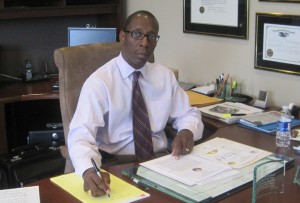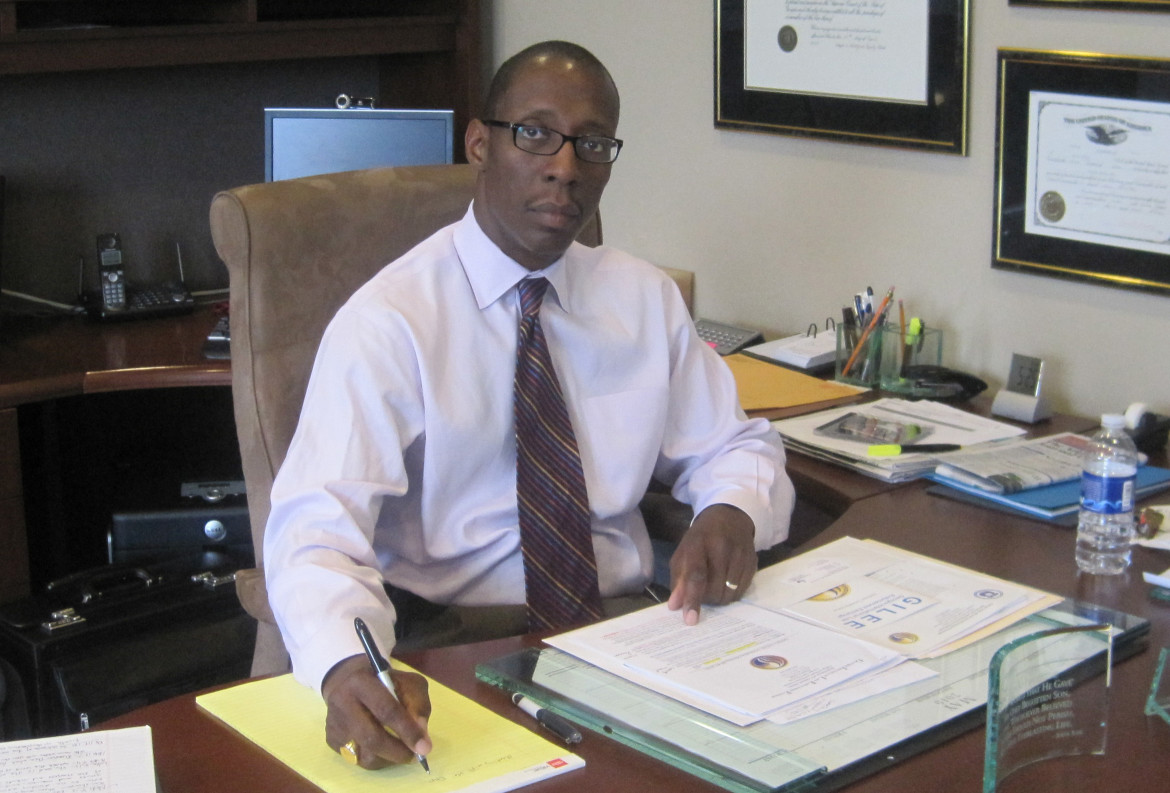
Hunt
Former Georgia Department of Juvenile Justice Commissioner Garland Hunt has a new gig. Two weeks ago he was named president of Prison Fellowship, a 35-year-old Landsdowne, Virginia-based non-profit that touts itself as the largest prison ministry for adult inmates in this country. The organization has a presence in 50 states and an international arm in more than 120 countries.
Nothing much had been heard from Hunt, a lawyer, ordained minister and corrections industry veteran, since late last year when then Georgia Gov.-Elect Nathan Deal abruptly replaced him in the post after only seven months on the job. Hunt recently spoke to JJIE.org’s Chandra Thomas about his new position and his reflections on his days at the helm of the state agency charged with monitoring and caring for some 20,000 youngsters.
JJIE: What do you remember most about your time with DJJ?
Hunt: Within the short time I was there, I fell in love with the young people we were serving. I recognized that there was a great need for supervision and a great need for role models to get them back on track. I also really miss the staff; so many of them have a heart for those children and they really want to help them. However, like any state agency the challenge was always great having to do more with less. The main concern when you are within a state agency with tight resources is wondering whether we can still perform on the level that meets the needs of the citizens of Georgia. That is always a major issue. Our job is to ensure that these young people are getting the care that they need and making sure that they are adequately supervised. It’s an ongoing challenge I am sure, but I believe that the team that DJJ has in place is going to make the right decisions and do what they can with the resources that they have.
JJIE: We recently asked a diverse mix of juvenile justice experts from across the country to weigh in on one major change they’d like to see in the juvenile justice system. What one suggestion would you make?
HUNT: I think in every setting it’s going to be important for juvenile offenders to have proper programming available to them; particularly evidence-based programming that can help them strengthen themselves while in the system. A lot of idle time creates opportunity for mischief. That time [within the juvenile system] needs to be filled with good programming. I am very concerned about that.
JJIE: In the past you have been very vocal about your belief that children within the system can be rehabilitated. How did you feel about the state Legislature passing the Juvenile Good Behavior Bill in the last session?
HUNT: I was still there when we began the process of drafting that legislation so I was very pleased to hear that it was approved. I think DJJ did a great job of finding the right sponsor for that legislation to pass. When you get something like that passed it doesn’t just affect the child, but it also positively affects the community as a whole. I think it’s a great piece of legislation.
JJIE: How do you feel about your new post?
HUNT: God has ordered my steps for this new assignment, to touch the lives of inmates nationwide with the gospel of Jesus Christ. Our goal is to touch the life of the inmates in a way that it will affect recidivism. I firmly believe that if you change a man’s heart, his character and behavior will change too. We want to touch their lives in a way that when they go back into the community they will tend not to reoffend. When we reach an inmate’s heart it doesn’t just help him, it also helps society with public safety.
JJIE: Describe the work that Prison Fellowship does?
HUNT: We have several programs, but overall we put a lot of emphasis on encouraging churches to get involved in the lives of inmates in their area. Our goal is to court churches for our volunteer training and curriculum. We seek to mobilize churches nationwide to change the lives of the inmates in their respective communities. We have field directors nationally in certain states. We have an opening right now for a field director in Georgia. We will definitely be putting more resources in Georgia to make sure that we are covered there. We now provide online training certification for volunteers to go into prisons as a certified Prison Fellowship volunteer. The training used to be in person. We used to send a trainer out to train volunteers at the church, but now we’re doing it online to expand our reach. Anyone can go to our Website (www.PrisonFellowship.org) to sign up for the training.
JJIE: Does your organization do any work specifically with juveniles in the system?
HUNT: At this time we don’t do anything specific with the juvenile population, but that is definitely one of the goals in our three-year plan. We want to work with young people. I must admit that I do have a real concern with making sure that young people in the system don’t graduate into the adult system. If the churches can help with that, we certainly want to facilitate that.

From which state he is?